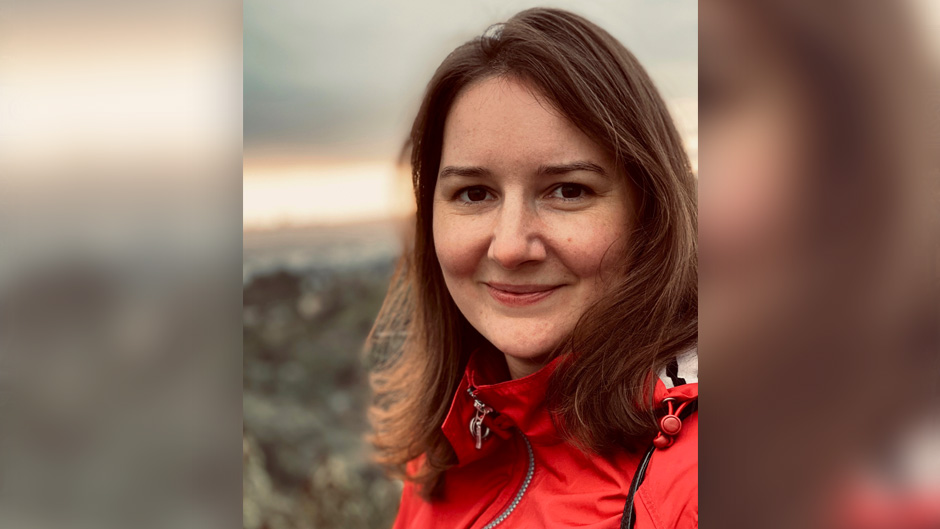Krista Goff’s love of history began at home. Her inspiration to study the stories that bring the past to life originated from her parents who were both public school teachers. Goff’s father taught history in high school and her mother was an elementary school teacher.
“I have always been inspired by their dedication to education and their love for learning, which was cultivated and highly encouraged at home,” said Goff, a historian of the Soviet Union and associate professor in the Department of History at the University of Miami College of Arts and Sciences. “It is because of them that education has always been at the forefront of what I do.”
As a testament to her work in bringing to life the histories of minoritized ethnicities in the Soviet Caucasus, Goff was awarded the prestigious Dan David Prize, which is considered the world’s largest prize for practitioners of historical disciplines. Goff is one of nine scholars from around the globe who were honored with the $300,000 prize to help support future research.
“I am beyond thrilled to receive this prestigious prize, especially at a time when investment in historical research is declining and contestation over the past is front and center in contemporary politics and in our everyday conversations,” said Goff. “The Dan David Foundation’s support for historical disciplines underscores the importance of this work.”
Leonidas Bachas, dean of the College of Arts and Sciences, said the Dan David Prize is “one of the most important awards for historians. This well-deserved recognition showcases the importance of Professor Goff’s groundbreaking scholarship and her contributions to uncovering the history of minorities in the Caucasus. We are very proud to count her among our esteemed faculty.”
Throughout the years, Goff has taught numerous courses that propel students to embrace the study of history and to understand the complex history of Eurasia.
“I’m currently teaching a course on oral history where students undertake their own oral history interviews and then use those interviews as a primary source in a research paper,” said Goff. “Students learn not just about the past but about the complexity of history research and methodologies,” Goff added.
Goff also teaches courses that cover more than 1,000 years of history from the medieval period to the Russian Empire, Soviet Union, and beyond. She also recently taught advanced undergraduates and graduate students in a seminar on contemporary history, where students engaged in deep conversations about the legacy of the Soviet Union in the broader region today.
“We recently passed the one-year anniversary of Russia’s full-scale invasion of Ukraine,” said Goff. “During the seminar, my students were really trying to understand not only what’s happening now but how we got here to begin with. Continuing conversations with students and faculty about this war is very important because we don’t want it to become normalized.”
In 2021, Goff published her award-winning book, Nested Nationalism: Making and Unmaking Nations in the Soviet Caucasus, which won four book prizes, including the Rothschild Prize from the Association for the Study of Nationalities, the Reginald Zelnik Book Prize in History from the Association for Slavic, East European, and Eurasian Studies, the Baker-Burton Award from the European Section of the Southern Historical Association, and the Biennial Best Book in Slavic Studies Award from the Southern Conference in Slavic Studies.
“My book examines questions of belonging—who belonged in the Soviet republics, who belonged in the imagining of the Soviet future, and who had the power to determine that belonging—all in the context of ethno-national communities that were often bureaucratically erased, pressured to assimilate, or undermined by state and party officials,” said Goff.
According to Goff, receiving the Dan David Prize couldn’t come at a better time in her professional career. “I currently have two projects in the works, so it will be instrumental in helping me accomplish what I need to move both projects through to completion,” she said.
Goff is currently working on a digital humanities project with geographer Evangeline McGlynn at University of California, Berkeley. This digital mapping project involves a collection of Soviet ethnographic maps that Goff and McGlynn have curated, digitized, and geo-rectified to open up new pathways for thinking about states, lands, and histories.
“This project creates a new historical artifact for digital public use,” said Goff. “Our work critically examines the interplay of erasure, power, and empire in these ethnographic maps and explores how historians can critically engage with maps to write and think about the past.”
Goff’s second project examines the afterlives of World War II-era experiences, policies, and practices in the Soviet Caucasus, including related national deportations. She is exploring the themes of nationalism, citizenship, empire, minoritization, migration, and belonging.
The Dan David Prize, endowed by the Dan David Foundation and headquartered at Tel Aviv University in Israel, was first established in 2001 by the late entrepreneur and philanthropist Dan David, to reward innovative and interdisciplinary work that contributed to humanity.
Goff, along with the other 2023 winners, will be honored at the Dan David Prize award ceremony in Tel Aviv in May. To learn more about the Dan David Prize and the 2023 winners, visit www.dandavidprize.org.

